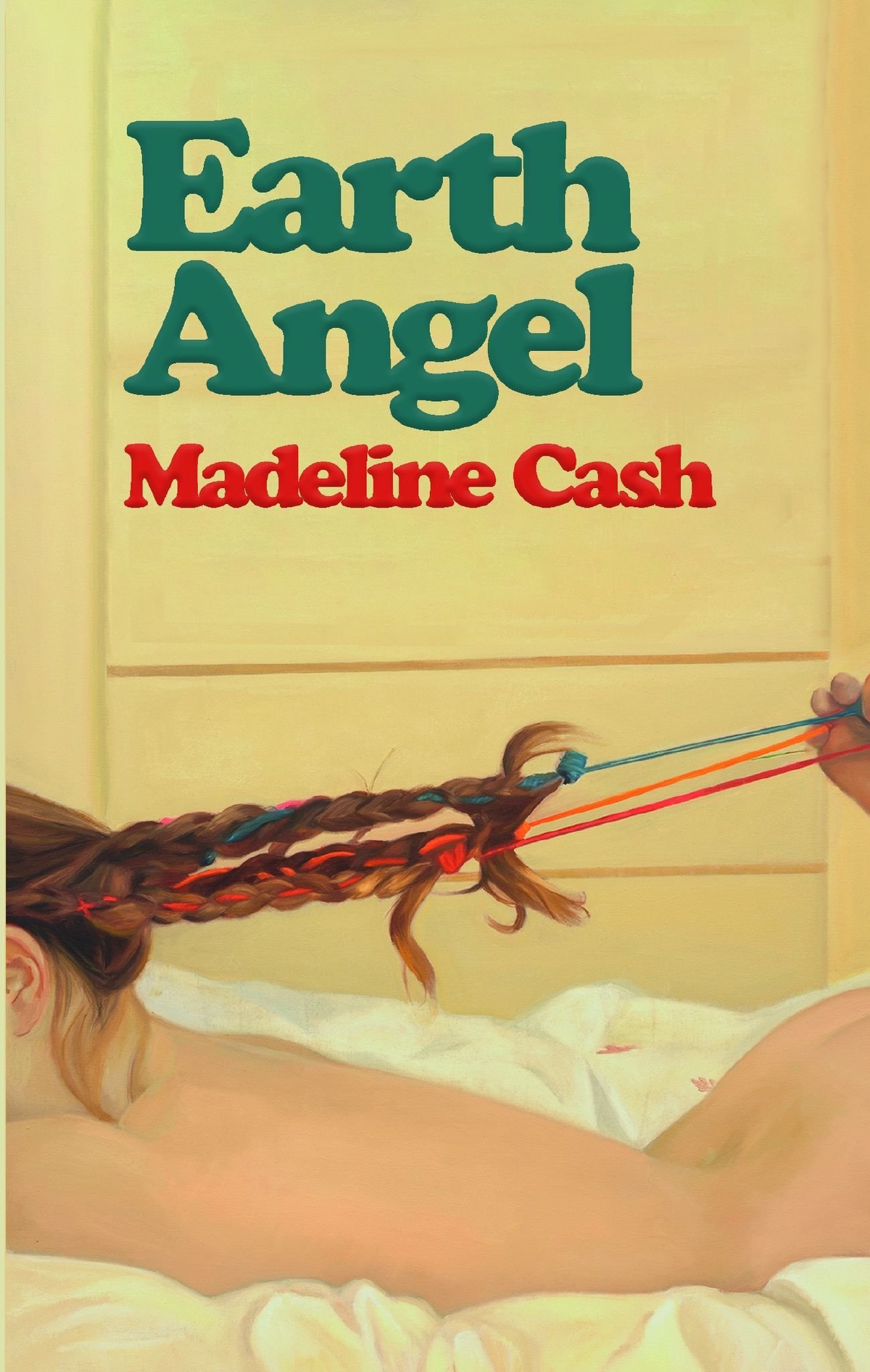
Lucifer Was an Angel, Too: A Review of Madeline Cash’s Earth Angel
Teslas with Coexist stickers, school girls in plaid, adult slumber parties, group sex. Madeline Cash’s Earth Angel is a crescendo into chaos; a look into the absurdity of what it means to be human in this digital age.
In fifteen lightly-intersecting short stories, Cash takes the objective goals of the American Dream — capitalism, CEOs, the “I’m going to be somebody!” mentality — and injects them with the realities of what it means to live that existence. What we may see as hopeful, light (buying a house, finding love, dating someone famous) – is actually darkness in disguise. This darkness is fertile soil for contradiction. What better setting for this than L.A., a haven for millennials who spin their wheels in a great quest for meaning?
Cash clears the smog away (this is Los Angeles, after all) and hangs her commentary out to dry. She pushes her characters a step further than expected, hooks them up to an IV filled with irony, and watches as they degrade on their own slippery slopes.
This irony sometimes works, and sometimes falters. At times, the prose seems to fight against itself in a heated, Goldilockian battle for balance. Some stories come off as affected. Others achieve that elusive, intangible quality of truth: “We cheers to our 401ks, our health insurance, our dental… It’s happy hour and for that hour we’re happy.”
Characters appear and reappear; some existing on the periphery and others taking center stage. Anika, Abigail, Luka: these stories branch off into new growth. The character Sam Berman, in particular, will appear again and again; in passing and as a vessel for thematic lessons from Cash, but always in a way that makes the reader lament his existence. “It’s the fault of women, he thinks. Women cornered the market on pain — labor, heartbreak, etc. — leaving nothing left for him.” If there was a villain in this collection, it’s Sam Berman. That the reader wants to engage with him (if only to become exasperated by his malice and contemptibility) is a testament to Cash’s keen eye for character development.
Cash is new to the literary scene and her voice is certainly distinctive. She demonstrates her ability to play with the peculiarities of paradox, to mirror the oxymoronic ways in which we live our lives. These stories are not tales intended to instill a moral, rather they are statements that such paradoxes exist. The discourse, though, stops there. There could have been another layer, here; a depth of understanding in the realm of character motivation paired with this objective look at paradoxical reality. The work in some sense lacks commentary in the form of. Yet, the characters are believable in their damage, and in their detachment. The prose is intentionally detached, too: offering the endearing, the bitter, the dark to the reader with wry delivery.
Through her stories, it becomes clear that Cash, herself, has something to prove, and this is where her greenness is perhaps most apparent. Her writing vibrates with energy, with youth, with the power that can only come from disillusionment without consequence. Many works have pulled this off successfully, and the author’s age and experience does not negate the credibility of her work. Ultimately, it’s up to the reader to decide if they connect with Cash’s prose, her discussions and dissections into the contradictions of the American Dream.
Overall, Earth Angel is certainly worth the read. The prose already echoes of Otessa Moshfegh’s wit, Samantha Hunt’s grit, and Karen Russell’s eccentricity. Watch this space.
Earth Angel is available from Clash Books.